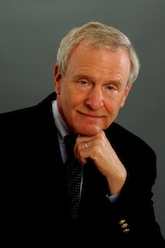According to Stuart L. Kaplan MD, there are six things you should know about him:
• He is a Distinguished Life Fellow of the American Academy of Child and Adolescent Psychiatry.
• He is a Clinical Professor of Psychiatry at Penn State College of Medicine.
• He was awarded the Outstanding Mental Health Professional of the Year by the National Alliance of the Mentally Ill, Saint Louis Chapter, in 1998.
• He has served as the Director of Child and Adolescent Psychiatry at three major institutions, two of which were University medical schools.
• He is Board Certified in Child Psychiatry and Adult Psychiatry and served as an examiner for the American Board of Psychiatry and Neurology 14 times.
• Dr. Kaplan has authored over 100 scientific papers, book chapters, abstracts and national and international scientific presentations.
Check out the following Psychology CE Courses based on listening to Shrink Rap Radio interviews:
Jungian Psychotherapy Part 1 (6 CEUs)
Jungian Psychotherapy Part 2 (7 CEUs)
Jungian Psychotherapy Part 3 (7 CEUs)
Jungian Psychotherapy Part 4 (6 CEUs)
Jungian Psychotherapy Package of the Four Above (26 CEUs)
Wisdom of The Dream (4 CEUs)
Positive Psychology (6 CEUs)
Get our iPhone/Android app!
A psychology podcast by David Van Nuys, Ph.D.
Podcast: Play in new window | Download
Subscribe: Apple Podcasts | RSS

I enjoyed your interview with Stuart Kaplan. In this interview Kaplan adds his voice to the shrill controversy of diagnosing the “bipolar child”. This is actually a very complex issue. I found Kaplan’s arguments in this debate to be somewhat weak in a number of ways.
Let me break the debate up into two main domains. The first is the controversy over the medical model and the use of diagnoses from DSM in general, especially in children. Kaplan appealed to the problems with medical diagnoses for psychiatric concerns in his opposition to the label of bipolar and voiced the “self-fulfilling prophecy” problem attached to diagnosis. He then weakly countered the same arguments against his favored diagnoses of ADHD and ODD, by arguing that they were less harmful because these are less debilitating conditions.
The second domain of this debate lies in the evidence to support the diagnoses of bipolar in childhood as opposed to ADHD. Kaplan has more ground to stand on here, as the strength of the evidence for ADHD as a construct is greater than that for childhood bipolar, however that may change over time. From my experience I do believe there is a distinction between typical ADHD manifestations and situations where children may be employing a “manic defense” against anxiety. Lou Cozolino refers to this distinction is his book “The Neuroscience of Psychotherapy” (at the end of the ADHD section). Children who present with these defenses have different underlying temperaments than typical ADHD youngsters and tend to do poorly with typical treatments for ADHD in my experience. The exact implications of the use of such defenses in childhood, I would agree, is anything but clear. I do share Kaplan’s misgivings with the use of the label of “bipolar”. I have concerns about the medical “disease” model and its implications, especially for children.
Another aspect of this debate that was not mentioned is the increase of diagnoses of bipolar in adulthood with the arrival of milder variants of bipolar disorder such as bipolar 2 disorder and cyclothymia in the DSM IV. Adults who have been diagnosed with these milder conditions are very likely to see their children’s difficulties through the lens of such diagnostic constructs. The implications of this can be serious for a child’s emerging view of him or herself.